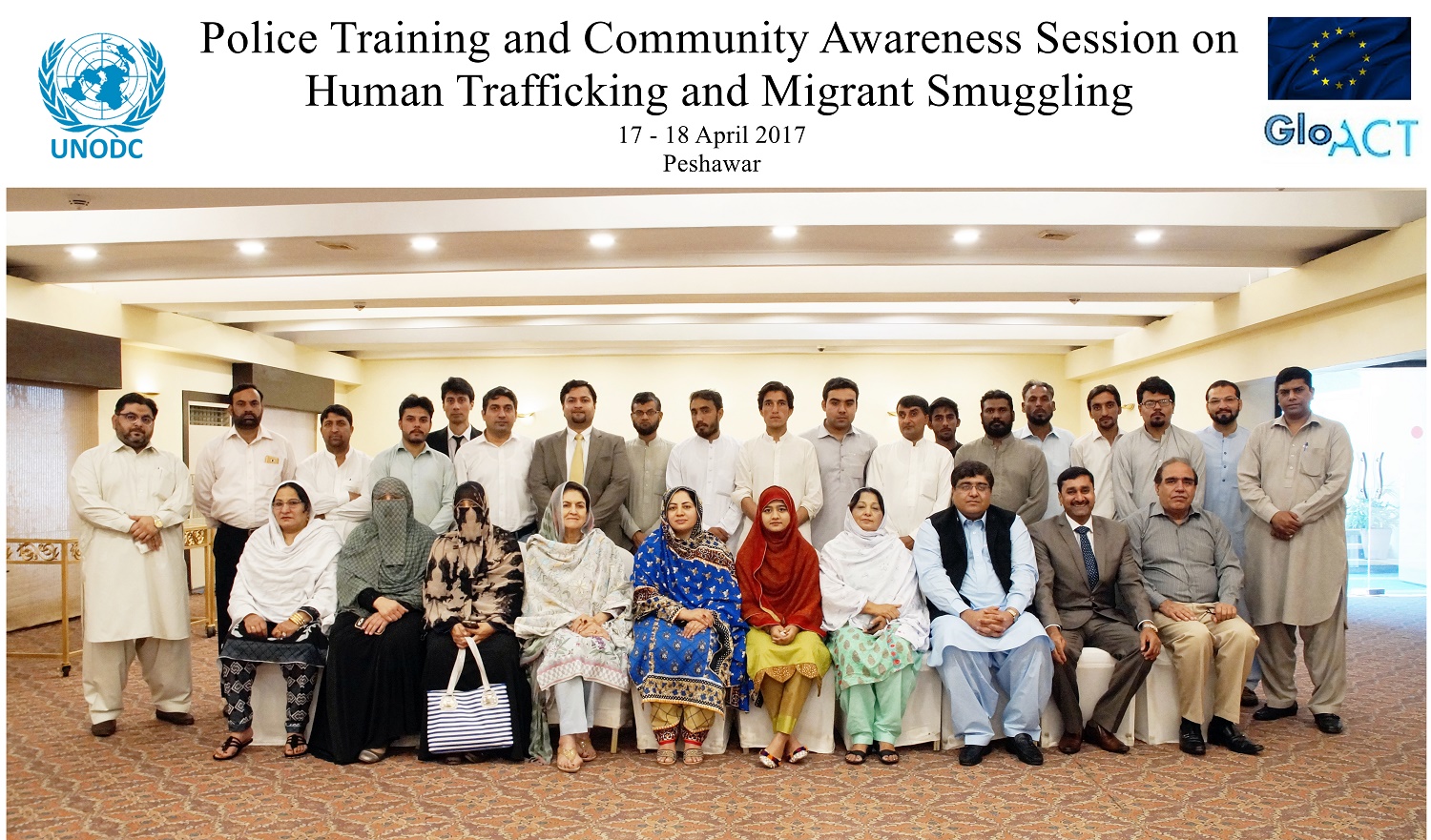
Peshawar, Pakistan - 17 April 2017 - Under the EU funded GLO.ACT (Global Action to Address Trafficking in Persons and the Smuggling of Migrant) project, the Federal Investigation Agency ( FIA) in partnership with the United Nations Office on Drugs and Crime (UNODC), conducted a two day police and community awareness training on human trafficking and migrant smuggling in Peshawar.

Over the last three decades Peshawar, the capital of the Pakistani province of Khyber Pakhtunkhwa, has dealt with a large influx of Afghan refugees and the Jalozai refugee camp is also in close proximity. Taking this into account, the organisers felt that raising awareness about Trafficking in Persons (TIP) and Smuggling of Migrants (SOM) is of particular importance here.
The training, chaired by the Additional Director of the FIA Khyber Pakhtunkhwa Zone, Mr. Imran Shahid, forms part of a series of awareness raising workshops that will be rolled out for police and civil society in areas particularly affected by these two crimes. This time, 25 police officials and 25 civil society representatives took part in the training. The main aim of the training series is to provide education on the crimes of TIP and SOM, particularly the adverse impact on victims and prevention and protection measures that should be in place.
Experts from the FIA, UNODC and civil society delivered the session that included the

Concluding the event, Mr. Shahid said that he appreciated the efforts of UNODC and stressed the need for greater coordination between the police and the FIA. He also pointed out that criminal networks had become increasingly good at luring vulnerable people into being exploited and that much more needed to be done in terms of awareness raising to help prevent TIP and SOM. He noted that UNODC, in coordination with the FIA, had drafted two new laws currently awaiting Senate approval on TIP and SOM. He went on to explain that human trafficking within Pakistan accounts, on an annual basis, for millions of people being forced into bonded labor at brick kilns, in agriculture, the

For more information about GLO.ACT read more here.
For more information about UNODC Pakistan please read more here.
For further information, please contact:
Email: glo.act@unodc.org
Twitter: @glo_act